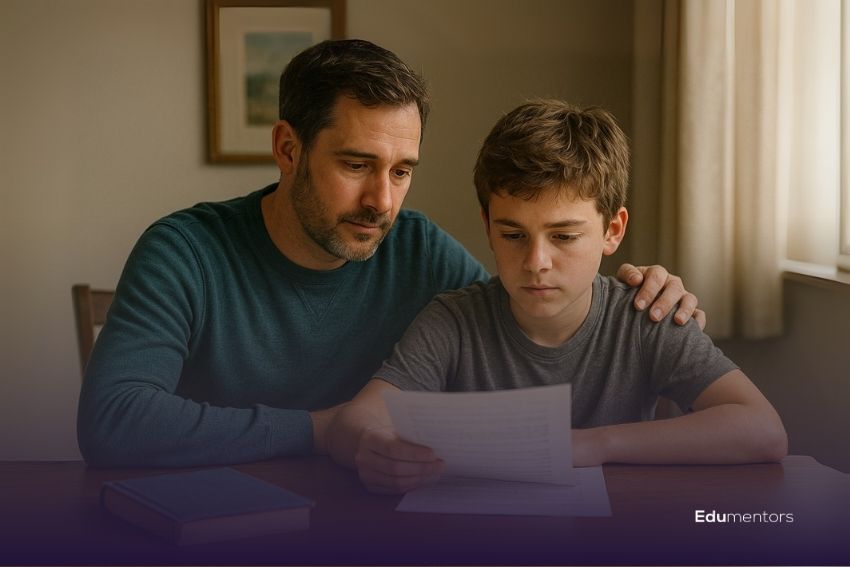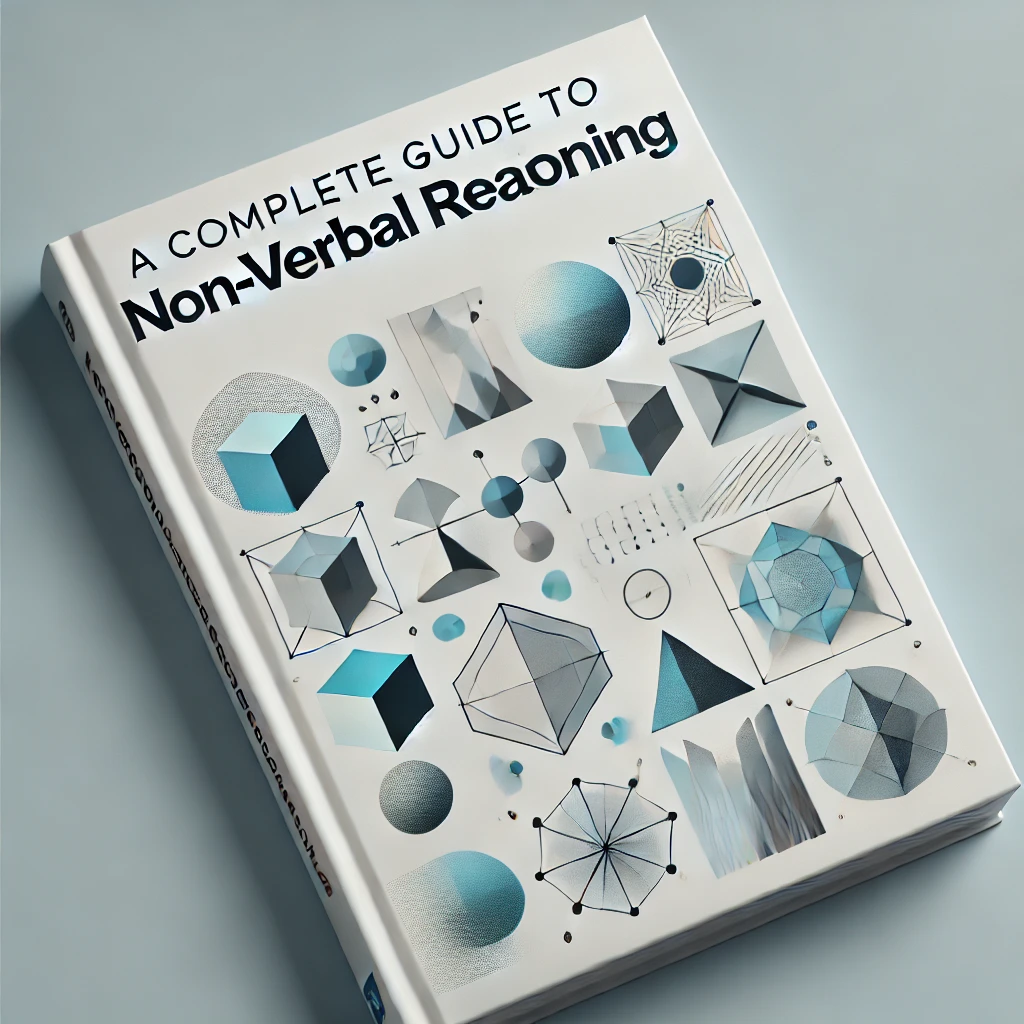Preparing for the 11 Plus exam can be stressful. The exam tests a wide range of skills and every child is different. What feels easy for one might be a real challenge for another. As a parent, it’s natural to wonder: What is the hardest 11 Plus subject?
Your child will encounter four main 11 Plus subjects: English, Maths, Verbal Reasoning and Non-Verbal Reasoning. One of them often stands out as more difficult. In our guide, we will explain in detail what makes that subject so challenging and why many students struggle with it, as well as how to overcome these difficulties.
What Are the 11 Plus Subjects?
Since we already mentioned the main 11 Plus subjects, now we will go through what they consist of. Here’s a quick look at what each paper involves:
English
This paper often includes reading comprehension, spelling, punctuation, grammar (SPaG) and sometimes creative writing. The exam expects children to analyse texts, understand vocabulary in context and answer questions clearly.
Maths
The Maths section focuses on Key Stage 2 content and beyond. It covers topics like arithmetic, fractions, percentages and even early algebra. The exam usually presents problem-based questions that children must complete without a calculator. Some papers include up to 50 questions in 50 minutes.

Verbal Reasoning
This section tests how well your child can work with words, patterns and logic. It includes things like codes, sequences, analogies and vocabulary puzzles. Strong reading skills are helpful here, as many questions rely on spotting word-based patterns quickly.
Non-Verbal Reasoning
Unlike the others, this part is all about visual thinking. Children must spot patterns in shapes, sequences and diagrams. The questions often involve rotation, symmetry and spatial reasoning. Because schools don’t usually teach it, children often find it unfamiliar and difficult at first.
Most 11 Plus exam papers are multiple choice and strictly timed, so accuracy and speed are both important. Understanding the format early on can help your child feel more confident on the day.
What Is the Hardest 11 Plus Subject?
While every child has their strengths and weaknesses, many find Non-Verbal Reasoning the most difficult part of the 11 Plus exam. Unlike English and Maths, which are taught regularly in primary school, Non-Verbal Reasoning feels completely new. It involves shapes, patterns and logic puzzles that most children haven’t come across before.
This unfamiliarity can lead to confusion and frustration, especially when the questions are timed. Children may not know how to approach them at first, and that can affect their confidence. The good news is that with regular practise and the right support, this section becomes much more manageable.
Some children also struggle with Verbal Reasoning or Maths, particularly if they find speed or problem-solving difficult. But overall, Non-Verbal Reasoning is often the one that feels the most challenging, not because it’s harder in content, but because it’s unfamiliar territory.
Understanding Non-Verbal Reasoning in the 11 Plus
Non-Verbal Reasoning isn’t just about shapes and pictures. It’s a test of how well your child can recognise patterns, think logically and act quickly. It assesses important skills such as spatial awareness, attention to detail and the ability to identify patterns or sequences in visual information. The types of questions your child might face include:
| Odd-one-out | Choosing which shape doesn’t follow the same rule as the others |
| Shape sequences | Working out what comes next in a visual pattern |
| Cube nets | Visualising how flat shapes fold into 3D cubes |
| Folding and rotating | Predicting how shapes change when turned or flipped |
| Analogies | Finding links between sets of diagrams or symbols |
| Codes and reflections | Solving visual puzzles using logic |
In GL 11 Plus exams, there are usually 12 question types altogether. These are multiple-choice and must be completed within a tight time limit, sometimes as little as 30 minutes for a large number of questions. That time pressure adds an extra layer of difficulty, especially for children who haven’t seen these types of puzzles before.
Because Non-Verbal Reasoning isn’t part of the regular school curriculum, it can take a while for children to get used to the format. But with steady practise and the right strategies, they can learn to approach these questions much more easily.
How Does Non-Verbal Reasoning Compare to Other 11 Plus Subjects?
| Subject | Why It May Feel Easier | What Makes It Challenging |
| English | Children see reading, writing, and SPaG daily at school | Comprehension texts can be hard and limited in time |
| Maths | Based on Key Stage 2 content already taught in class | Includes problem-solving, fractions and early algebra |
| Verbal Reasoning | Relates closely to English and vocabulary skills | Puzzle formats and logic questions may feel unfamiliar |
| Non-Verbal Reasoning | Tests logic and spatial skills not covered in school | Entirely new format, fast-paced and visually demanding |
How to Make Non-Verbal Reasoning Easier?
The good news is that Non-Verbal Reasoning can get easier with the right tools and a bit of routine. Many children transition from feeling completely stuck to solving these questions without any difficulty.
Start by helping your child understand the different question types. Spend time going over examples together, especially the tricky ones like folding shapes, cube nets, and sequences. Once your child gets used to the rules behind each type, they’ll begin to spot patterns more quickly.
Regular practise is important. Use 11 Plus past papers to build speed and accuracy. These will also help your child become familiar with the format and pressure of timed questions. Start with a few questions at a time, then work up to full sections.
There are also plenty of free guides, visual examples, and tutor-led walkthroughs available online. If you’re unsure where to begin, this comprehensive guide to 11 Plus preparation breaks it down into manageable steps.
Tips for Other 11 Plus Subjects
Support your child across all 11 Plus subjects with these simple tips:
- Maths: Focus on word problems and basic algebra and of course, use 11 Plus past papers.
- English: Encourage regular reading to improve vocabulary and comprehension and practising SPaG questions and full-sentence answers is a must.
- Verbal Reasoning: Build vocabulary through reading and games. Use 11 Plus exam papers to practise code solving and logic puzzles.
Conclusion
Non-Verbal Reasoning often feels like the hardest part of the 11 Plus and for good reason. Schools don’t teach it and its fast pace and unfamiliar format make it challenging. But that doesn’t mean it can’t be managed. Once your child understands what to expect, things start to feel less overwhelming. Practising regularly with 11 Plus exam papers can build both skill and confidence.
It’s also worth knowing that the 11 Plus is highly selective. According to research from the Education Policy Institute, access to grammar schools can vary depending on region and background, which adds extra pressure for many families.
With the right support and a steady routine, even the hardest subject can become one they feel proud of.
If you’re looking for 11 Plus online tutors who can guide your child through every step, Edumentors is here to help. For more practical advice, this complete guide on how to pass the 11 Plus offers extra tips.
FAQs
How hard is the 11+?
The 11 Plus can be challenging, especially due to time pressure and unfamiliar question types like reasoning. Preparation makes a big difference.
What do you need for 11+?
Your child needs strong skills in English, Maths, Verbal and Non-Verbal Reasoning, plus regular practise with exam-style questions.
What age do you take 11+?
Most children take the 11 Plus in Year 6, usually aged 10 or 11.
What is a good score for 11+?
A standardised score of 110-121 is often seen as strong. But “good” varies by school, as some require higher marks than others. You can learn more about how 11 Plus scores are calculated and what they mean in this helpful breakdown from Explore Learning.
How to get better at 11+?
If you want your child to get better at 11+, they should practise regularly, focus on weaker areas and make sure your child feels confident with the format. A tutor can help if things feel difficult.








